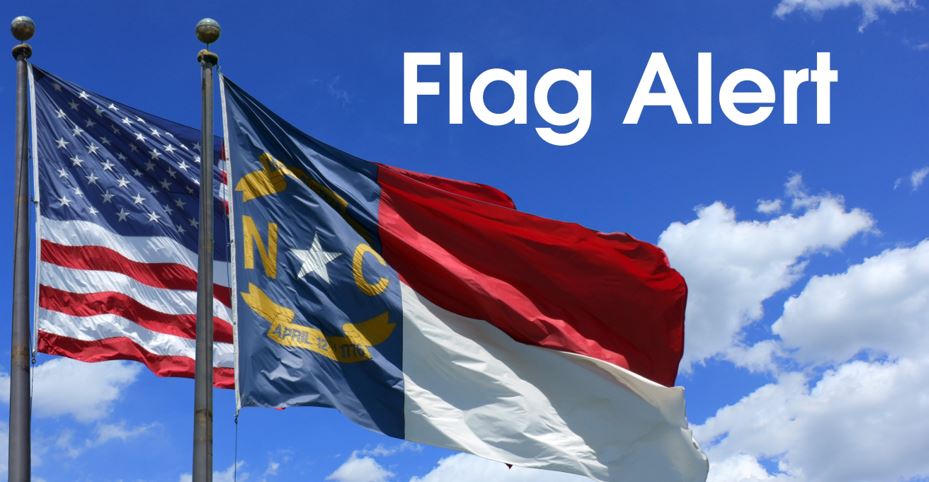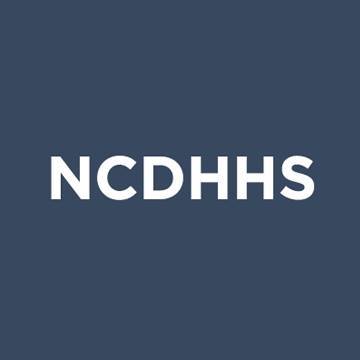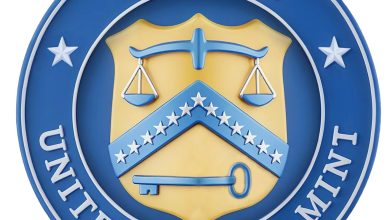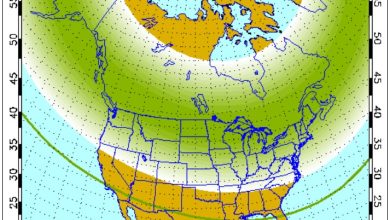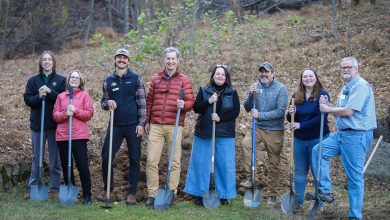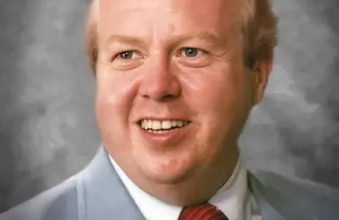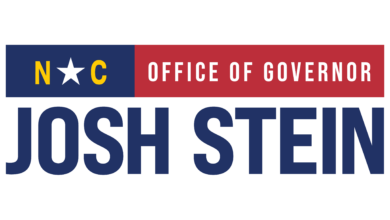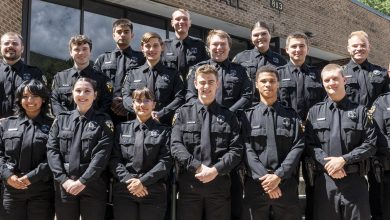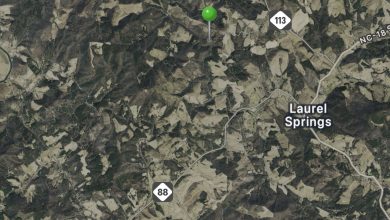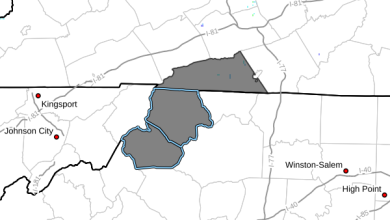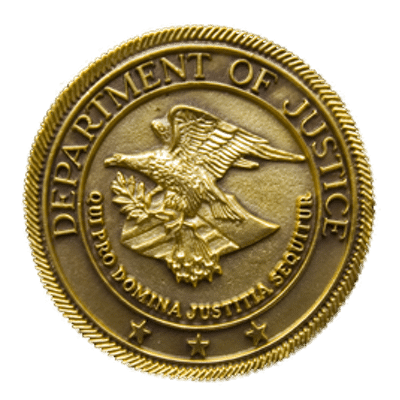
Last Updated on December 17, 2020 4:14 pm
Defendants include students at Appalachian State, Duke & UNC, members of several fraternities
GREENSBORO, N.C. – Twenty-one people face federal charges as a result of a lengthy investigation into the sale of narcotics on or near college campuses in North Carolina. The drug trafficking investigation, conducted by a United States Drug Enforcement Administration (DEA) task force and the Orange County Sheriff’s Office, revealed drug activity involving members of several fraternal organizations at universities in the state. Matthew G.T. Martin, United States Attorney for the Middle District of North Carolina, Robert J. Murphy, Special Agent in Charge of the Atlanta Field Division of the DEA, and Charles S. Blackwood, Sheriff of Orange County, North Carolina, held a press conference today to discuss the investigation.
While working a drug case several years ago, the Orange County Sheriff’s Office received information about the sale of illegal drugs on the campus of the University of North Carolina at Chapel Hill (UNC). In November 2018, agents and officers assigned to the DEA’s Raleigh District Office initiated an investigation into the distribution of cocaine hydrochloride and other illegal drugs in the Chapel Hill area. It became clear early in the investigation that illegal drug distribution occurred at or near some UNC fraternal organization properties. Court filings to date specifically allege illegal drug activity involving the UNC chapters of Phi Gamma Delta, Kappa Sigma, and Beta Theta Pi occurring between 2017 and the spring of 2020.
Over the course of several years, the drug ring funneled over a thousand pounds of marijuana, several hundred kilograms of cocaine, and significant quantities of other drugs into these college campuses. Estimates of the total drug proceeds are not presently available, but they exceeded 1.5 million dollars.
According to documents filed in court, investigators utilized information from cooperating sources and cooperating defendants, and investigative methods such as controlled purchases, undercover purchases, financial investigation, surveillance, and analysis of electronic devices. Ultimately, investigators discovered that individuals were shipping cocaine from California via the U.S. Postal Service (USPS) and transporting marihuana by motor vehicle. Involved parties shipped bulk cash proceeds from illegal drug transactions through the USPS. Other proceeds, estimated to be approximately 1.3 million dollars, transferred hands through financial institutions utilizing money orders, Western Union, and mobile payment applications.
One primary supplier was the first person charged as a result of the investigation, FRANCISCO JAVIER OCHOA, JR., age 27, of Turlock, CA, who was indicted in November 2019 for conspiracy to distribute 5 kilograms or more of cocaine and conspiracy to distribute 100 kilograms or more of marijuana. According to documents filed in court, from March 2017 until March 22, 2019, OCHOA supplied approximately 200 pounds of marihuana and two kilograms of cocaine weekly to a cooperating defendant in Orange County. Law enforcement operations at locations associated with the subject in Carrboro and Hillsborough resulted in seizure of 148.75 pounds of marihuana, 442 grams of cocaine, 189 Xanax pills, steroids, human growth hormone, other narcotics, and approximately $27,775.00 in U.S. currency. The investigation revealed that payment for drugs was made using Venmo and by sending cash through the U.S. mail. OCHOA pleaded guilty to the indictment On November 24, 2020, he was sentenced to 73 months imprisonment, 5 years of supervised release, and ordered to pay a $250,000 forfeiture judgment.
The distribution of hard drugs was pervasive in and around certain fraternities. Illustrations of the type of activity, taken from court documents, include:
A cooperating defendant (CD2) described regularly supplying cocaine to “Chase” (later identified as defendant Charles Poindexter), who sold only to fraternity members. CD2 said he felt safe doing so because most transactions took place at the Phi Gamma Delta fraternity house behind closed doors. CD2 also stated that most drug transactions occurred around fraternity events, and bigger events required larger amounts of narcotics. In an interview, Poindexter admitted to purchasing cocaine, marihuana, and “molly” (MDMA) from CD2, and stated that all 22 members of his fraternity pledge class “went in” to purchase an ounce of cocaine for spring break in his sophomore year.
Another cooperating defendant (CD1) identified CD2 as his source for marihuana, Xanax, and cocaine, which CD1 distributed at the Kappa Sigma fraternity house to Kappa Sigma members, associates, and members of other fraternities. CD1 also told investigators that defendant David Bayha was selling marihuana from his room at the Kappa Sigma house, and that Bayha posted marihuana prices to the UNC Kappa Sigma GroupMe thread. In May 2020, an undercover investigator purchased 1/8-ounce of marihuana for $35 from Bayha outside the Kappa Sigma house. Another cooperator (CD5) was introduced to members of the Kappa Sigma fraternity by a friend and attended functions at the Kappa Sigma house. CD5 told investigators s/he witnessed “habitual” drug use there.
Cooperating sources of information and cooperating defendants also identified JASON SHUANG XU as a subordinate drug distributor to CD2. XU obtained one-half ounce quantities of cocaine hydrochloride (cocaine) from CD2 every two weeks during the school semesters at UNC-Chapel Hill in 2017 and 2018. CD2 utilized XU as an intermediary for the distribution of cocaine, psilocybin (mushrooms), and alprazolam (Xanax) at the Kappa Sigma Fraternity. XU is a member of this fraternity, and he provided illegal drugs to other fraternity members for distribution. A search of XU’s iCloud account revealed text messaging threads with CD2 and others, as well as photographs of cocaine, marihuana, marihuana use, and cocaine use.
Cooperating sources and cooperating defendants identified AMBER JANNA JOHNSON as a subordinate cocaine distributor to CD2. JOHNSON began supplying a cooperating source (CS) with one-half ounce quantities of cocaine every six (6) weeks from 2016 until 2018. JOHNSON introduced the CS to CD2 in 2018. The CS began obtaining one-ounce quantities of cocaine from CD1. In 2019, JOHNSON introduced the CS to a second cocaine supplier who provided cocaine to the CS until the spring of 2020. CD2 advised the DEA that JOHNSON, a student at Duke University, distributed cocaine to students at Duke and to fraternity members from UNC-Chapel Hill. CD2 supplied JOHNSON with ounce-quantities of cocaine for distribution on both campuses. It appears JOHNSON obtained and distributed at least 200 grams, but less than 300 grams of cocaine, from August 2017 through March 2019.
CD2 identified JASON BLAKE NITSOS as a subordinate cocaine distributor, and advised that NITSOS sold the cocaine to members of the Eta Chapter of the Beta Theta Pi Fraternity at UNC-Chapel Hill. Between October 2017 and March 2019, NITSOS paid CD2 approximately $15,000.00 for cocaine in 32 Venmo transactions. Fifteen of the transactions occurred over the Internet Protocol address located at the Beta Theta Pi fraternity house on the campus of UNC-Chapel Hill.
Court documents also link the trafficking of controlled substances to other college towns. In the summer of 2020, a cooperating defendant (CD) identified an Appalachian State University (ASU) student and member of the Delta Chi fraternity member in Boone as a known distributor of controlled substances to ASU students. In August 2020, the subject of CD’s allegations, Kyle Beckner, sold 1,000 dosage units of LSD to CD for $3,000 in the parking lot of a Chapel Hill restaurant. In October 2019, investigators made a controlled purchase of one ounce of cocaine from another ASU student, Devin McDonald, after McDonald was identified by a cooperating source as someone who distributed cocaine to other ASU students. Other defendants charged as a result of the investigation lived in Charlotte and Wilmington.
“No one is above the law, including college students and fraternity members at elite universities. This serious drug trafficking is destructive and reckless, and many lives have been ruined,” said U.S. Attorney Martin. “This investigation reveals that the fraternity culture at these universities is dangerous. University administrators and national chapters cannot turn a blind eye to the impact on these students and the environment on their respective college campuses. The drug culture feeds many other problems on campus and in our society. University administrators must take a stand and put a stop to it.”
“College communities should be a safe haven for young adults to obtain a higher education, not a place where illegal drugs are easily accessible,” said DEA SAC Murphy. “These fraternity members’ drug trafficking crimes contributed to a toxic and dangerous environment on these college campuses. The arrest of these drug traffickers makes these college campuses and their respective communities safer. DEA and its law enforcement partners will continue to strive to ensure these college campuses remain a safe environment charged with educating the best and brightest so they may become future leaders of our country. These arrests are a shining example how success can be achieved through spirited law enforcement cooperation.”
Between July and December, 2020, twenty additional defendants have been charged.
In an indictment returned on July 27, 2020, the grand jury charged the following defendants with conspiracy to distribute cocaine and conspiracy to distribute marijuana:
- ANDREW BOYLAN GADDY, age 24, of Carrboro, NC;
- TRAVIS MICHAEL EVANS, age 27, of Hillsborough, NC;
- DANE LAMBERT SIMON, age 23, of Durham, NC;
- BRIANHA NICOLE HASKELL, age 24, of Hillsborough, NC; and
- MARIELA ZAVALA MENDOZA, aka Maria Ochoa, age 25, of Turlock, CA.
In other indictments returned in July, October, and December, 2020, the grand jury charged each of the following defendants with conspiracy to distribute cocaine:
- ZACHRE CHASEN ABERCROMBIE, age 27, of Charlotte, NC;
- AMBER JANA JOHNSON, age 24, of Carrboro, NC;
- JOHN FREDERICK HOLLOWAY, age 23, of Carrboro, NC;
- DEVIN JAMES McDONALD, age 23, of Kill Devil Hills, NC;
- JASON BLAKE NITSOS, age 24, of Greensboro, NC;
- DEVON ANTHONY PICKERING, age 35, of Charlotte, NC;
- EDISON TORRES ROBLES, aka Fransisco Gallego Mandez Rodriguez, age 26, of Durham, NC; and
- JASON SHUANG XU, age 23, of Apex, NC.
Seven additional defendants were individually charged in October and December, 2020, with a variety of offenses:
- CHANDLER DAVID ANDERSON, age 27, of Wilmington, NC, faces charges of conspiracy to distribute cocaine and marihuana.
- DAVIS LINDSEY BAYHA, age 21, of Chapel Hill, NC, faces charges of conspiracy to distribute marihuana; use of a communication facility to facilitate a drug felony; and distribution of a controlled substance within 1000 feet of a public or private college or university.
- KYLE PARRISH BECKNER, age 22, of Boone, NC, is charged with distribution of LSD and use of a communication facility to facilitate a drug felony.
- BERNARD ALEKSANDER BUKOWSKI, age 24, of Raleigh, NC, faces one count of conspiracy to distribute cocaine and one count of possession with intent to distribute cocaine.
- CHARLES CLEVEAU POINDEXTER aka Chase Poindexter, age 23, and JACKSON ALEXANDER NORRIS, age 22, of Chapel Hill, NC, are each charged with conspiracy to distribute cocaine; use of a communication facility to facilitate a drug felony; and distribution of a controlled substance within 1000 feet of a public or private college or university.
- CHRISTOPHER ANTONIO REYES, age 26, of Greensboro, NC, is charged with conspiracy to distribute 100 kilograms or more of marihuana.
The defendants indicted for conspiracy to distribute cocaine and conspiracy to distribute marijuana face terms of imprisonment ranging from not less than 10 years and not more than life, not less than 5 years and not more than 40 years, and not more than 20 years, with fines of up to $10,000,000, $5,000,000, $1,000,000, respectively, or both, and terms of supervised release of at least 3 to 5 years, or more. The other charges carry lesser terms of imprisonment, fines, or both, and supervised release.
The charges are merely allegations, and each defendant is presumed innocent unless and until proven guilty.
Orange County Sheriff Charles Blackwood said, “I am proud of the work my deputy did on this task force, and I am thankful for our partnership with the DEA. Task forces such as this provide our Sheriff’s Office with the resources and equipment needed to conduct these protracted cases and achieve the type of results seen in this case. The amount of illegal narcotics being sold and used in this case was not only astonishing; it also reflected a very serious public health crisis. We worked this case in an effort to save lives. We also wanted to protect the honor and integrity of the University of North Carolina and other institutions of higher learning. This investigation and the prosecution of those involved in the drug trade on university campuses should send a clear message that such activities will not be tolerated.”
In addition to OCHOA, the following defendants pleaded guilty to one or more charges against them and are scheduled to be sentenced in 2021:
GADDY – sentencing 3/24/21
EVANS – sentencing 2/17/21
SIMON – sentencing 3/24/21
HASKELL – sentencing 3/30/21
PICKERING – sentencing 2/20/21
NITSOS – sentencing 3/19/21
XU – sentencing 3/19/21
The case is being investigated by the Orange County Sheriff’s Office and the U.S. Drug Enforcement Administration (DEA). Law enforcement partners in Orange County and on UNC’s campus provided assistance during the investigation.
The investigation continues, and more charges are possible. Anyone with additional information is asked to call the DEA Raleigh District Office at 919-790-3004.
This other law enforcement activity is part of an Organized Crime Drug Enforcement Task Forces (OCDETF) investigation. OCDETF identifies, disrupts, and dismantles the highest-level drug traffickers, money launderers, gangs, and transnational criminal organizations that threaten the United States by using a prosecutor-led, intelligence-driven, multi-agency approach that leverages the strengths of federal, state, and local law enforcement agencies against criminal networks.









